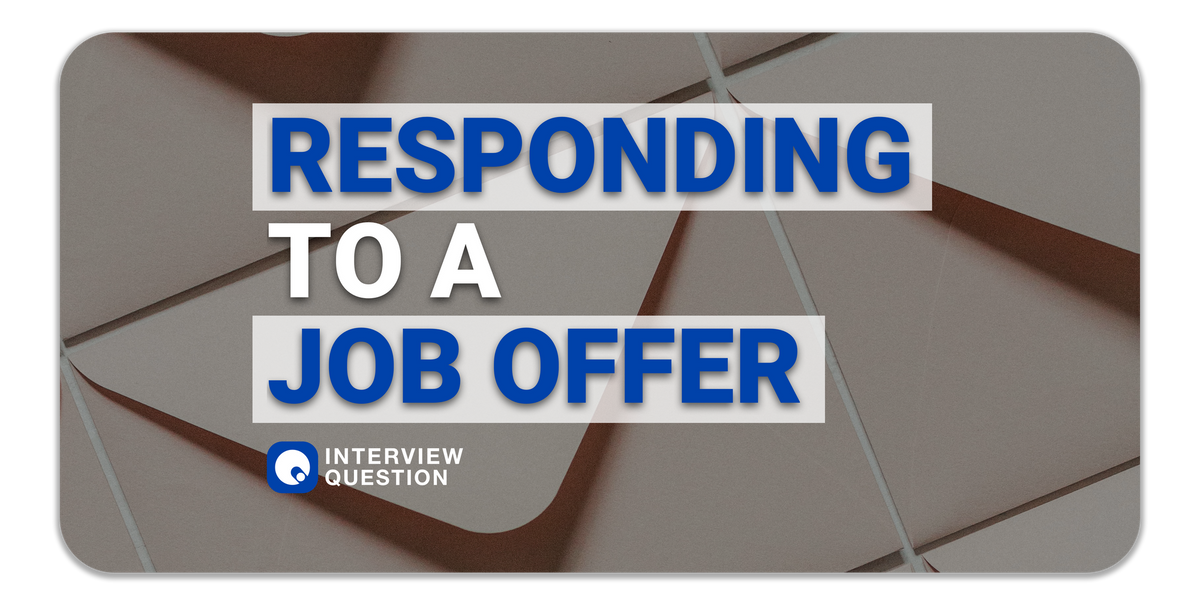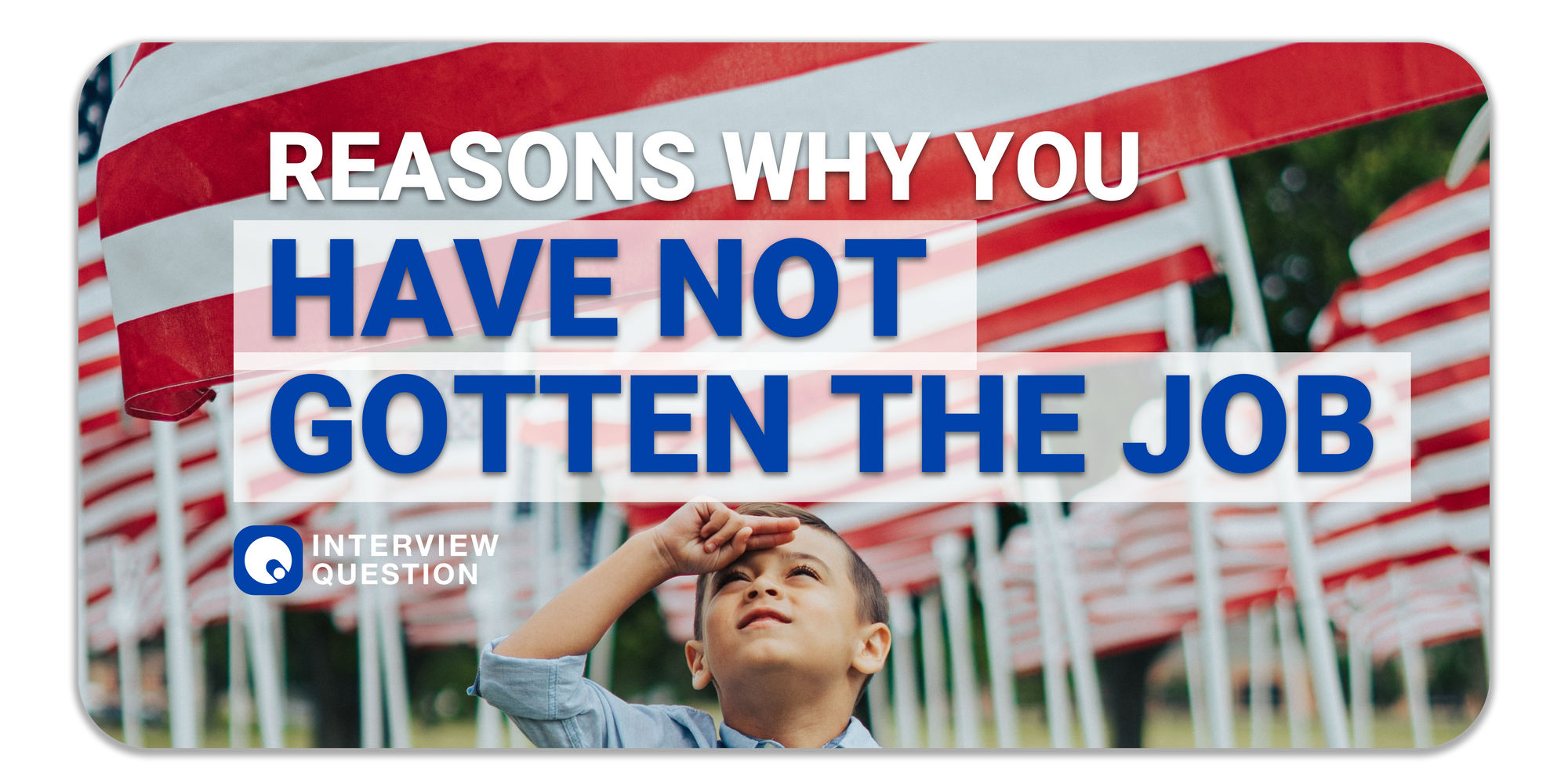Responding to a Job Offer
∙ Communicating Intention in Your Response ∙ Language Use and Sentence Construction ∙ Sample Content and Templates ∙ Moving Forward After Responding

Giving an appropriate response to an offer is tough even though some naive job seekers seem to think there are only two scenarios - to accept or reject. The content you choose to include and the language, tone, word choice, and sentence length communicate meaning.
To melt your brain freeze, we've put together communication help, a list of pointers to the language you should be using, sample content and templates you can use to determine a tone for your reply.
Communicating Intention in Your Response
There are actually 4 common scenarios most candidates intend to communicate in their response to a job offer. Decide between these options on which message you want to deliver and have the company receive.
The 4 Common Responses to a Job Offer:
- Accept the job offered in its entirety: You accept all terms indicated, and most candidates can't wait to start work.
- Accept the job on a conditional basis: You accept the job, but you would like some terms to be modified.
- Decline the job offered in its entirety: You reject the job, usually because you have accepted a competing offer or have had a change in circumstance.
- Request more time: You need additional days to consider the offer or you are waiting for another offer to make a comparison.
If you haven't got an offer (but went ahead to seek out info just to prepare yourself) then I think you should spend some time to write a follow up email and actually pursue for the offer itself.


Language Use and Sentence Construction
If you find yourself with a job offer, you would want to craft a response that is concise and professional.
- Content has to be straight to the point without use of words with double meaning. This prevents miscommunication issues.
- When expressing enthusiasm, limit to one sentence that talks about why you are excited about the opportunity. Details are needless, because you would have already communicated the meaning in your face-to-face (F2F) or video interview.
- When expressing your fit in the company, also limit to one sentence.
- In totality, your job offer response should be between 5 to 9 sentences long. Though this may only be for reference, editing your email down to a shorter version reduces wordiness. The interviewer just wants to know if you want the job.
- Legal terms should be avoided where possible. Legalese has a "formal" tone to it, which doesn't give off the right vibe when trying to convey excitement about the opportunity. For example, avoid using phrases like "I hereby accept…" or any other wording that sounds like something out of a formal letter.
To speed the process along, use our provided templates in the next section to get the tone of your email ready for after you've gotten the offer.
Sample Content and Templates
Reference List
In the next parts, use the headers in bold to find the category of responses you need to refer to. Under each section are sample sentences and phrases you can freely use in your reply to a job offer.
1. Accepting an Offer in Whole
I would [be honored/delighted] to accept your offer and look forward to joining [the company] as soon as possible.
2. Explain why you are excited about this opportunity
I am very excited about this opportunity [or] The [position] continues to interest me and I hope to receive more details soon.
3. Starting Date & Availability to Start Work
As you know, my current situation allows me to start [at any time / in one week] as long as it's before [date]. As I am currently engaged at [another company name], I will update you via email should I be able to start earlier.
4. Ask for Details About the Job & Bring Up Specific Questions
The offer you have sent me is [rather generous/competitive]. As the hiring manager, I would like to pose some additional question that were not covered in the interview to clarify the [roles and responsibilities in this position]. Below are the five queries I have with regard to the role. [List 5 queries]
5. Asking for More Time to Consider the Offer
I appreciate the offer received and the deadline of [3 days] given. As this is my first foray into [new industry] and there is a [reconsideration of offer/new offer] by [a competing company], I will only be able to respond to your offer on [date]. This should give me time to think my situation through and provide a response to you when I am ready. Should the terms of your current offer be adjusted, you may email me at [email].
6. Ask for Modification of Employment Terms
My goal at this point is to [be able to finance my two children through university] because [I had no chance to attend tertiary education due to my parent's financial cirumstance], and if this position can help me get there then I am all for it. A few things I was hoping we could discuss are [starting salary/days of annual leave/flexi work arrangements].
7. Counteroffer Because of A Competing Offer
Thank you for the opportunity given. At this point in time, I would not be able to join [company name] as a [job title], because I have received a more compelling offer which I am inclined to accept. As their deadline is [2 days away] and your offer is similar but less competitive, I would like to counteroffer a [narrower salary range/increase the overtime rate]. As much as my values meet with both companies, I find that the practical nature of compensation is very crucial to get past in order to focus on my responsibility while at work.
8. Reject an Offer Because of A Competing Offer
Thank you for the opportunity given. At this point in time, I would not be able to join [company name] as a [job title], because I have accepted a more compelling offer [at company name/exclude this]. Again, I appreciate the opportunity for me to join your team.
9. Reject an Offer Because of A Change in Cirumstance
Thank you for the opportunity given. At this point in time, I would not be able to join [company name] as a [job title], because my [personal/family] circumstances have changed [and I am unable to commute daily/need to care for my child full-time who is out of surgery, etc]. Again, I appreciate the opportunity for me to join your team.
Moving Forward After Responding
Once you've sent your acceptance or rejection, it's time to see what your next step is.
For Accepted Offers
You might want to then reach out and ask if there was anything else that you could be doing in order to move forward with them or if you now need to get back in touch with them. Wrapping up in this manner concludes that you are aware of your current state in the hiring process and interested in following through to be a staff or an employee with the company. You are now set to start work and be onboarded. All the best!
For Rejected Offers
You can continue your job hunt for an ideal job, join another company, cope with your "personal circumstance" or do whatever with your life. Wherever life leads you, you are now a little more experienced and capable to handle job offers as you've been through it once.

